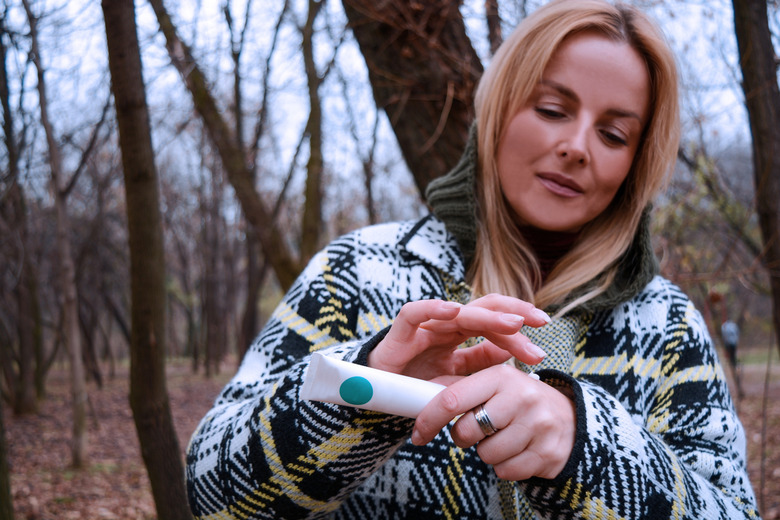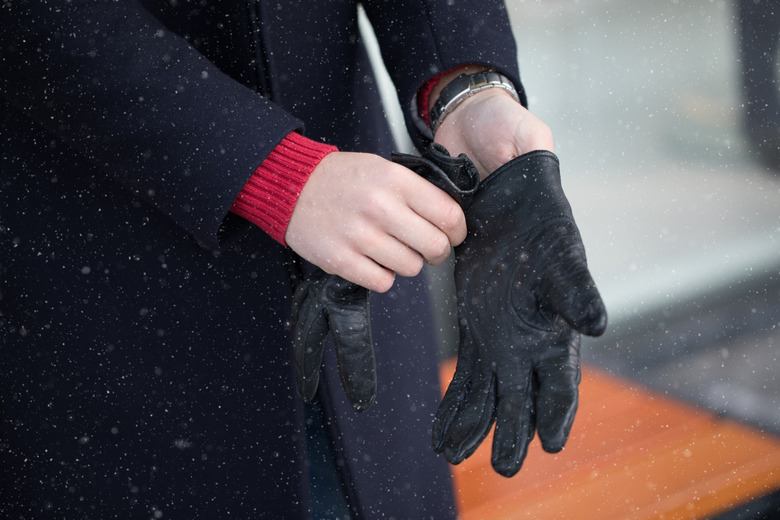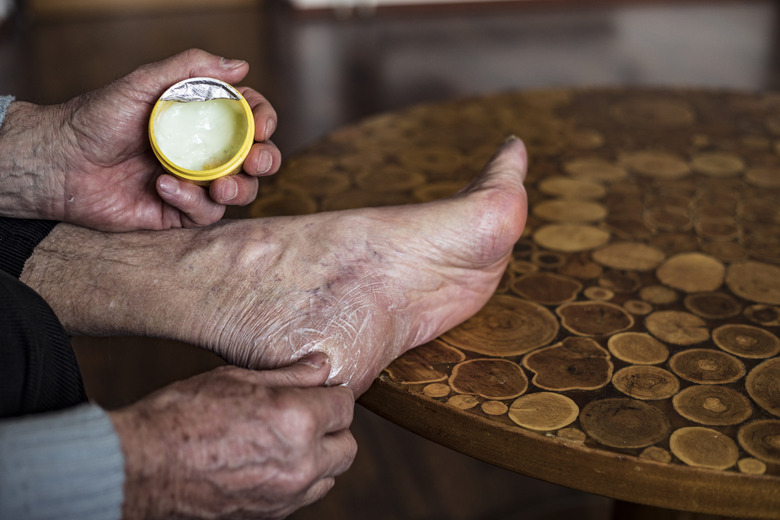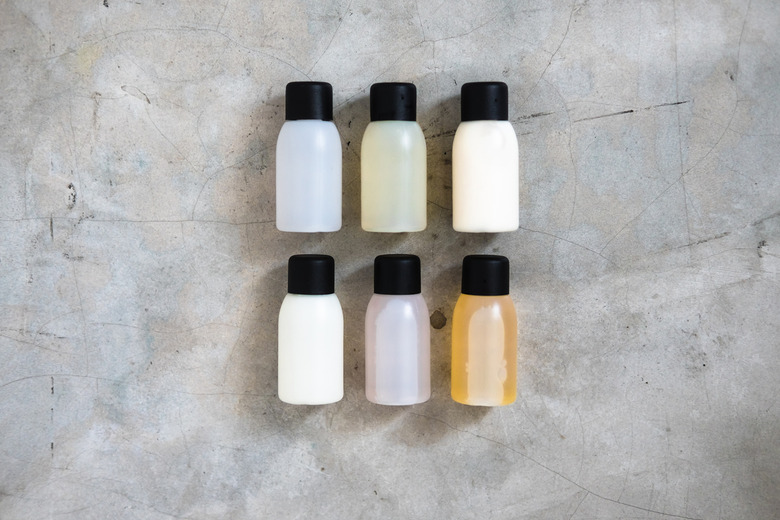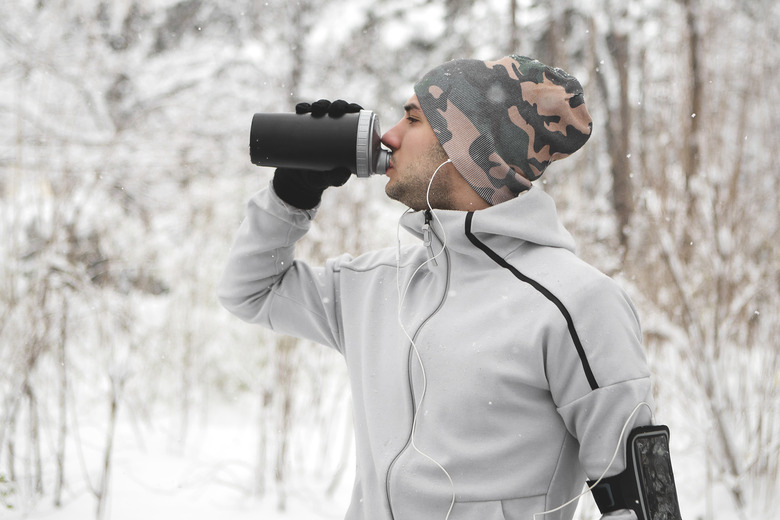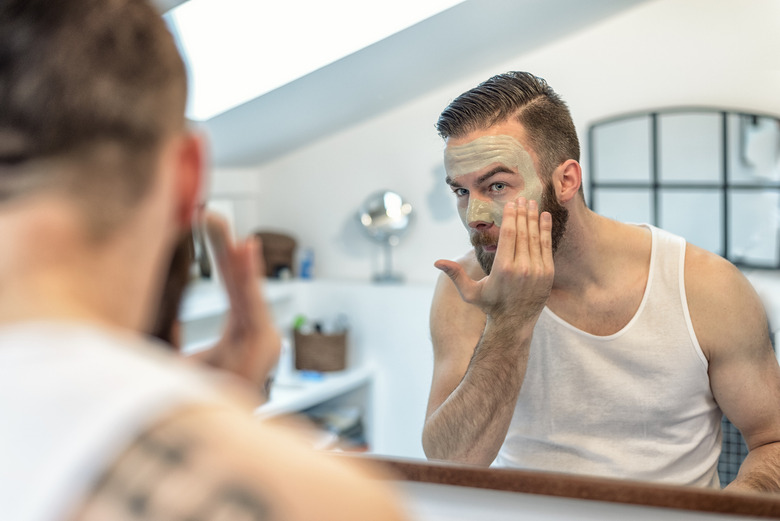Winter Skin Care Tips: How To Protect Your Skin During Harsh Weather
Winter: the dreaded season when we all dream of abandoning our cold cities and traveling to a warm-weather destination. But if you can't afford to splurge on a vacation hotspot, guaranteeing you're prepared for harsh winter weather is a priority.
There are steps you can take to prepare your car for winter weather and improvements you can make to your home after winter takes its toll. But are you keeping your body safe?
Winter weather is tough on our skin. Humidity is low, meaning the air is dry, and temperatures are freezing. And if you don't take the necessary steps to protect your skin from winter's harsh conditions, you'll have rough, irritated skin by the time warm, sunny days roll around.
Follow these tips to keep your skin looking and feeling fresh and rejuvenated.
Use sunscreen
A common misconception is that sunscreen should only be applied on sunny summer days when you're lounging at the beach or hanging poolside. But if you plan to participate in winter activities like skiing or snowboarding, sunscreen is a necessity. Sunlight is the greatest source of ultraviolet (UV) radiation, the main cause of skin cancer. If sunlight bounces off a surface, it can increase UV exposure. According to the Skin Cancer Foundation, "snow reflects 80% of the sun's UV light," doubling harmful exposure and increasing the risk of damage to your skin. Use a broad-spectrum sunscreen with an SPF of 15 or higher on exposed skin to protect your body.
Dress accordingly
This might sound like common sense, but the best way to protect your skin during the winter months is to dress accordingly. As the temperature drops, your layers should increase. The National Weather Service suggests wearing one to two layers and warm, waterproof shoes on a chilly day; two to three layers, a warm hat and waterproof boots on a cold day; and more than three layers, a warm hat, face mask and waterproof boots during extremely cold weather.
Avoid long, hot showers
After spending time outdoors on a winter day, your first instinct might be to turn the shower heat up as far as it'll go and bask until the hot water runs out. But your dream shower could damage your skin. According to the Mayo Clinic, one of the causes of dry skin is hot baths and showers. Set your water temp to warm, not hot. And avoid those arguments about running out of hot water or taking too long in the shower — the American Academy of Dermatology recommends keeping shower time to 10 minutes or less. Another pro tip: once you're out, pat your skin dry.
Use creams and ointments
Cold weather naturally dries out the skin. But you can prevent your skin from becoming rough and scaly by investing in thick creams and ointments. According to the American Academy of Dermatology Association, thick creams and ointments are a great defender against the effects of winter weather because they trap existing moisture in the skin and are less irritating than lotions. For best results, apply a cream to your entire body immediately after showering. And if you're naturally prone to dry skin, mix your cream with an oil for an extra layer of defense.
Use a hand cream
Peak flu season in the United States is during winter months. And though it's a myth that cold weather will give you the virus, touching a contaminated surface could. Washing your hands regularly should be a priority, but so should applying hand cream. Just like you would with your body, use hand cream immediately after washing to lock in moisture.
Wear gloves
In addition to applying hand cream, wearing gloves on chilly days will protect your hands from the negative effects of cold, winter air. Our hands are the first to indicate dry skin. Gloves prevent cracked skin and brittle nails.
Find a good foot cream
Your feet are trapped in thick socks and even thicker boots all winter long. But just because your toes are hidden away from the world doesn't mean they don't deserve some tender love and care. Dry conditions can lead to cracked, rough skin, and your feet can pay the price if neglected. If you want smooth feet all year long, apply a thick foot cream after showering and before bed.
Use lip balm
If your face is exposed when you venture out in cold weather, chances are your lips will suffer. Harsh winds can dry out your lips and leave them cracked and peeling. Invest in a lip balm to keep your lips smooth and moisturized. The American Society for Dermatologic Surgery recommends wearing a lip balm with SPF to not only protect your lips from harsh weather but UV rays as well. Just make sure to not share your lip balm with others to prevent spreading germs and diseases.
Keep moisturizers on deck
The key to protecting your skin in the winter is to constantly keep yourself moisturized. Stay prepared by keeping a travel-size lotion and hand cream in your bag or pocket. Invest in an extra lip balm that you can whip out when your lips start to feel dry and cracked.
Stay hydrated
Your body will show the signs if you're not drinking enough water, but it's easy to forget to drink the daily recommended amount when you're shivering rather than sweating. According to the U.S. Department of Agriculture, staying hydrated is essential to maintaining a healthy winter diet and vibrant skin. When you combine dropping temps with harsh winds and indoor heating, the result is extremely dry conditions, which lead to our bodies constantly losing moisture and our skin constantly drying out.
Use gentle products
The American Academy of Dermatology Association recommends using gentle, fragrance-free products to treat dry skin. Plenty of skincare products contain fragrances, alcohol and alpha-hydroxy acid, all of which dry out the skin. Swap out your favorite scented body wash or face scrub with an unscented product to help your skin retain its natural oils.
Keep the heat low in your home
On cold winter days, we all want to put on our fuzziest pajamas and curl up by the fire or the heat vent to get nice and toasty. But sitting near these sources of heat can dry out your skin. Our skin naturally loses moisture in the winter, and, according to the American Osteopathic College of Dermatology, central heating is extremely drying. Keep the heat at a low, comfortable setting in your home and wear slippers and extra layers if you do get chilly.
Purchase a humidifier
Humidifiers are a great investment during the winter months. Low humidity can cause dry skin, nasal and throat irritation and dry eyes. A humidifier adds moisture to the air. The Harvard Medical School recommends setting your humidifier around 60% to replenish moisture to the top layer of skin. Bonus: purchasing a humidifier can help prevent you from getting sick.
Use non-irritating laundry detergent
Laundry detergents can irritate dry or raw skin. Use fragrance-free and hypoallergenic laundry detergents to protect your skin. And you won't have to spend a fortune just to keep your skin healthy. Non-irritating laundry detergents can be purchased at a fair price.
Wear soft clothing
Rough materials, like wool, might keep you cozy and warm in the winter, but as they rub against you throughout the day, they can irritate the skin. If you absolutely have to wear that new fashionable wool sweater, wear cotton or silk underneath to prevent chafing and irritation.
Exfoliate, but not too often
Exfoliation, a process that removes dead skin from the body, can lead to smoother and brighter skin in the winter. But if done incorrectly, or too frequently, it can cause more harm than good. Begin by determining your skin type and finding a product that works effectively on dry skin. Be gentle to your skin and, afterward, apply moisturizer immediately. Your skin will thank you.
Switch up your diet
A nutrient-rich diet is essential to maintaining great skin. This is especially true in the winter when our skin takes a pounding. Strawberries, celery and cucumbers are full of water and are good at hydrating our body. Protein, vitamin A, vitamin C and omega-3 fatty acids are all nutrients that fight dry winter skin.
Switch up your shampoo
Nobody likes wearing a black shirt and seeing small, white flakes dusted on the shoulders thanks to dandruff. According to the Mayo Clinic, cold, dry seasons can cause an itchy scalp, one of the main causes of dandruff. Use a gentle shampoo to ease irritation and invest in a conditioner that will lock in moisture.
Make time for a nightly routine
Burnout from work, ripping and running with the kids and maintaining a healthy lifestyle are all stressors that can take a toll on your skin. Add in the drying effects of winter, and your skin might be at its worst when the temperature drops. If you've found a solution for those pesky dark circles, but your skin still appears tired and dull, make time for a relaxing nightly routine. After showering, apply creams, spending extra time on your face and other exposed areas. And purchase a pair of silk sheets. Not only will they keep you cool if you sweat at night, but they'll keep your skin feeling smooth.
Consult your dermatologist
If you feel like your skin is paying the price for cold winter weather or you notice worsening conditions, consult a dermatologist. According to the American Academy of Dermatology Association, dry skin can be a sign of skin conditions that need treatment, like eczema or dermatitis. A dermatologist can help you reach your goal of having smooth, healthy skin, no matter the weather. A fear of unhealthy skin is just one secret you should never keep from your doctor.





